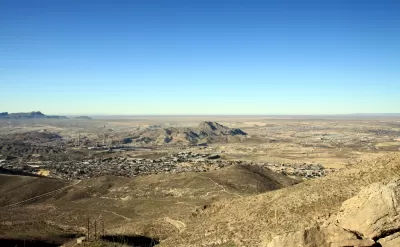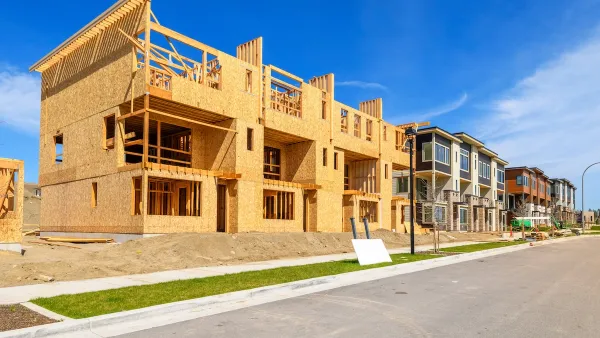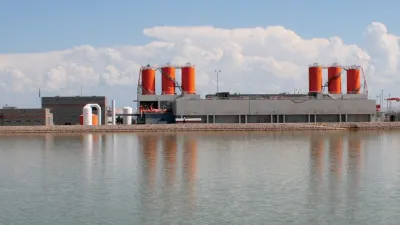Along the Mexican border, Texas "colonias" have often gone without basic infrastructure. Saying it'll cut bureaucracy, Governor Greg Abbott removed funding for a program that helps residents access government services.

Daniel C. Vock discusses the plight of poverty-stricken exurbs along Texas' border with Mexico. "The predominantly poor residents of colonias -- makeshift subdivisions often far outside city limits -- have bought land or cheap houses from unscrupulous developers who promised to eventually install electricity, running water and paved roads." In many ways unheard-of elsewhere in the U.S., residents have been left to their own devices.
There have been efforts to help these neighborhoods. In terms of inadequate infrastructure, "Texas cracked down on the worst offenders in the 1990s, but change has been slow. Many of these communities still lack even the most basic infrastructure systems." Vock goes on, "In 1999, Gov. George W. Bush signed a law that created a state ombudsman program to help colonia residents figure out the myriad programs available to help them."
"But Gov. Greg Abbott this summer effectively terminated Bush's program. [...] The move came as a surprise to many officials who represent border areas with colonias, because there had been almost no talk in recent years of cutting the program." Abbott characterized the program as unnecessary red tape.
According to El Paso County Commissioner Vincent Perez, there's not a lot individual Texas counties can do to help colonia residents. "Texas law [...] prevents counties from imposing zoning requirements on developments that could've prevented many of the ongoing problems with colonias, Perez says." Perez also made it clear that "pressure to address the infrastructure problems in colonias will continue to build, especially in the El Paso area, where the sprawling city is encroaching on once-isolated neighborhoods."
FULL STORY: On the Texas Border, Building Infrastructure Is Hard. Critics Say It's About to Get Harder.

Planetizen Federal Action Tracker
A weekly monitor of how Trump’s orders and actions are impacting planners and planning in America.

Maui's Vacation Rental Debate Turns Ugly
Verbal attacks, misinformation campaigns and fistfights plague a high-stakes debate to convert thousands of vacation rentals into long-term housing.

San Francisco Suspends Traffic Calming Amidst Record Deaths
Citing “a challenging fiscal landscape,” the city will cease the program on the heels of 42 traffic deaths, including 24 pedestrians.

Amtrak Rolls Out New Orleans to Alabama “Mardi Gras” Train
The new service will operate morning and evening departures between Mobile and New Orleans.

The Subversive Car-Free Guide to Trump's Great American Road Trip
Car-free ways to access Chicagoland’s best tourist attractions.

San Antonio and Austin are Fusing Into one Massive Megaregion
The region spanning the two central Texas cities is growing fast, posing challenges for local infrastructure and water supplies.
Urban Design for Planners 1: Software Tools
This six-course series explores essential urban design concepts using open source software and equips planners with the tools they need to participate fully in the urban design process.
Planning for Universal Design
Learn the tools for implementing Universal Design in planning regulations.
Heyer Gruel & Associates PA
JM Goldson LLC
Custer County Colorado
City of Camden Redevelopment Agency
City of Astoria
Transportation Research & Education Center (TREC) at Portland State University
Jefferson Parish Government
Camden Redevelopment Agency
City of Claremont





























